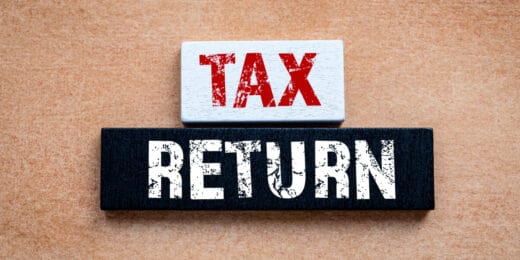Company profits are distributed in accordance with the provisions set out in the articles of association. Limited by shares companies are set up by profit-making businesses, which means that surplus income is normally paid to shareholders in the form of dividends. Companies limited by guarantee are usually set up by non-profit businesses, so surplus income is generally used to promote and achieve their non-profit aims.
Companies can also use trading profits for many other reasons, such as:
- growing the business
- purchasing new equipment or premises
- funding new projects
- investing in other businesses.
- research and development
- implementing marketing and branding strategies
- paying for advertising and promotional materials
Key Takeaways
- Shareholders determine profit distribution through the company’s articles of association during the incorporation process.
- Companies can reinvest profits to support growth, new projects, and marketing strategies instead of issuing dividends.
- The number and value of shares directly influence shareholders’ profit entitlement and decision-making power within the company.
Allocating company profits
The allocation of company profits is decided by the initial shareholders or guarantors (the ‘subscribers’ who set up the company) during the incorporation process. The rules on profit distribution will be outlined in the company’s articles of association.
The directors, who may or may not also be shareholders or guarantors, are responsible for trying to make the business as successful and profitable as possible for the benefit of these members.
Income is allocated accordingly to running costs, expenses, salaries and wages, national insurance and benefits, and all other costs and liabilities. Only after these costs and expenses have been paid can dividend payments be issued to shareholders.
Value of shares
The percentage of company profits that a shareholder is entitled to receive is determined by the quantity, class, and value of their shareholdings. Each share represents a percentage of the business, thus a percentage of profit entitlement. For example:
- If a company has one shareholder who owns 100% of issued company shares, they are entitled to 100% of the surplus income (profits)
- If a company has two shareholders and issues two shares of equal value, each shareholder owns 50% of the company and is entitled to 50% of the surplus income
Shareholders may choose to leave some of all of the available profit in the company to further the aims of the business. Alternatively, they can take their portion of company profits as dividend income.
There is no limit to the number of shareholders a company has or the number of shares it issues, but the value represented by each share will be diluted if the number of issued shares increases.
This will affect a shareholder’s percentage of ownership, profit entitlement, control, and decision-making power. These are important factors to consider when deciding on the number of shares to issue during and after company formation.
Corporation Tax Calculator
How to register a company
Companies limited by shares or guarantee can be registered at Companies House in two ways:
- though an approved online company formation agent like Rapid Formations
- directly at Companies House
Please note, however, that Companies House Web Incorporation Service is only available if you are setting up a limited company using Model articles of association.
The quickest and easiest way to register any type of company is through an authorised agent like Rapid Formations. Applications are completed and submitted online, reviewed by a member of our specialist team, and delivered electronically to Companies House to be processed. Generally, our online applications are approved by Companies House within 24 hours.
To complete an application, you should first check the availability of your preferred name using our company name-check tool. You will then be prompted to choose a company formation package from our compare packages page. The next step is to checkout and pay, after which you will be asked to enter your company details. The whole process should take between 5 and 10 minutes.
The following information will be required on the application form:
- company name
- registered office address – or alternatively, use our registered office service
- details of company director(s) – one or more
- details of shareholder(s) – one or more; can be the same person as the company director
- number of shares
Take a look at our guide on the Required Information for Company Formation for more information on the details you will be asked to provide.
When your new company has been registered, we will send you an email containing digital copies of your certificate of incorporation, the memorandum and articles of association, and share certificates (if applicable). Your company will be ready to trade as soon as Companies House processed and approves your application.
Please note that the information provided in this article is for general informational purposes only and does not constitute legal, tax, or professional advice. While our aim is that the content is accurate and up to date, it should not be relied upon as a substitute for tailored advice from qualified professionals. We strongly recommend that you seek independent legal and tax advice specific to your circumstances before acting on any information contained in this article. We accept no responsibility or liability for any loss or damage that may result from your reliance on the information provided in this article. Use of the information contained in this article is entirely at your own risk.








Join The Discussion